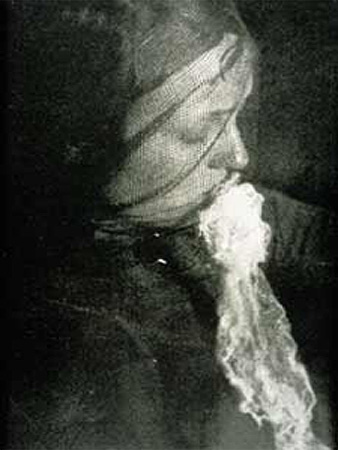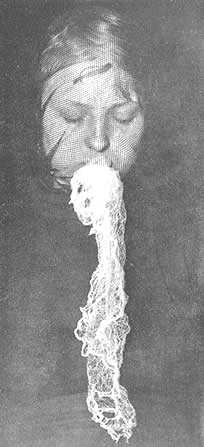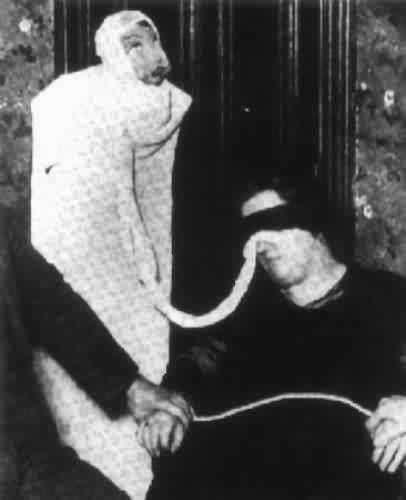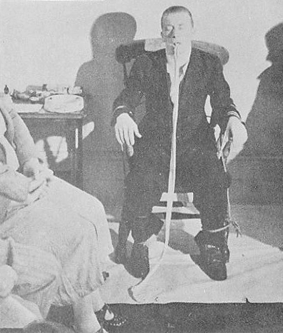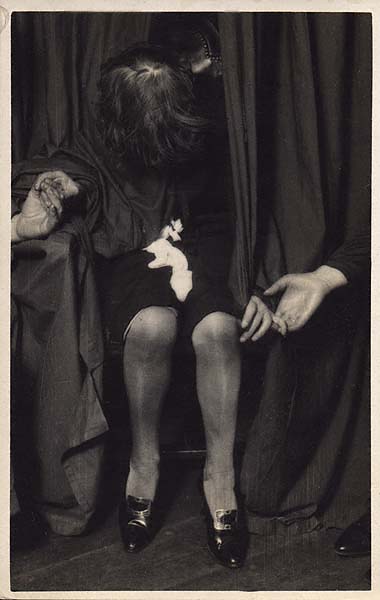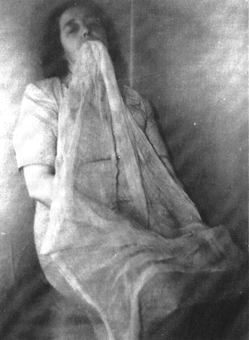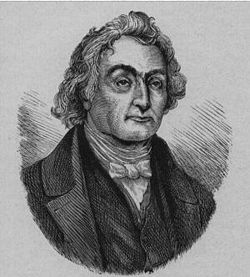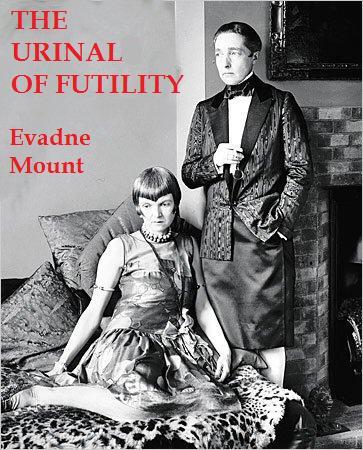“Dropping his studies in the realms of proverbial philosophy, that amiable mid-Victorian butt, Martin Tupper, toyed for a time with spiritualism. He attended one of Mrs Hall’s séances, when, with Home as the medium, the company included ‘a countess, the widow of a colonel, and a naval lieutenant’. As a preliminary, they were instructed to ‘kneel down and offer up a prayer’. This appears to have been effective, since the table rose from the floor, raps resounded by the dozen, and Home pulled red-hot coals out of the fire with his fingers. Although he had braved battle and the breeze often enough, such a spectacle was apparently too much for the representative of the senior service. ‘It quite altered his career’, says Tupper, ‘and, soon afterwards, he took Holy Orders’.”
Horace Wyndham, Mr Sludge, The Medium : Being The Life And Adventures Of Daniel Dunglas Home (1937)

